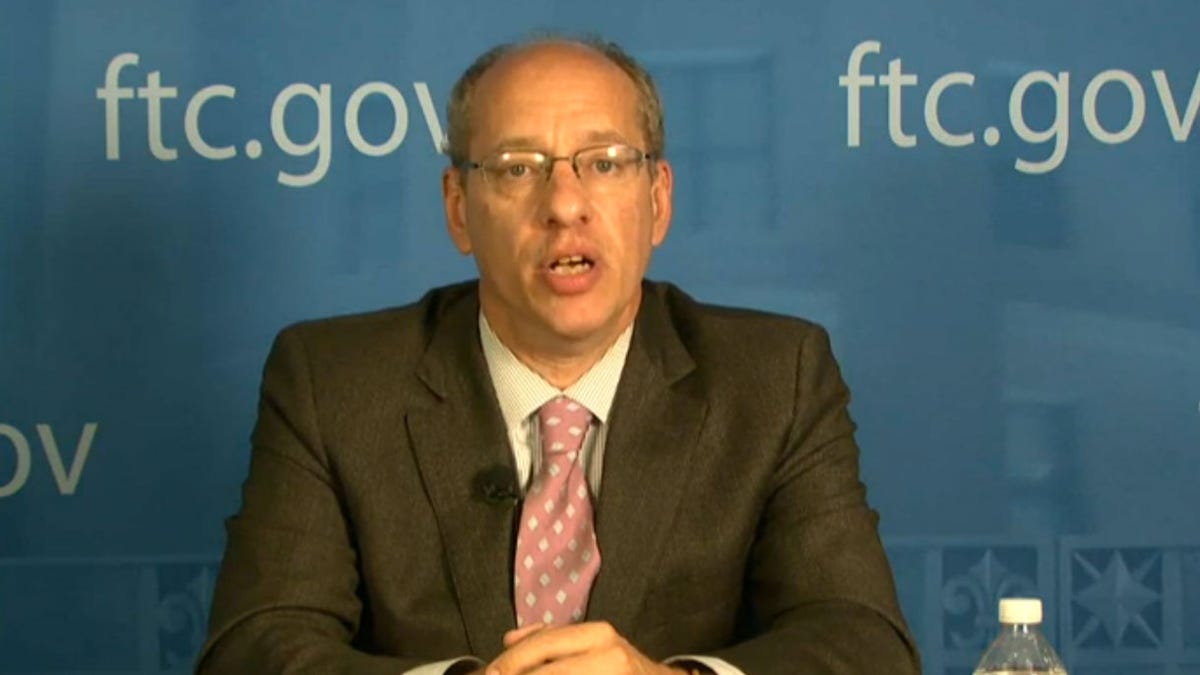Watchdog seeks FTC staff opinion on Google antitrust case
Trying to keep pressure on Google, Consumer Watchdog wants to see what exactly the Federal Trade Commission staff said in its investigation of the search business.

Consumer Watchdog, a group that's accused Google of antitrust misconduct, is trying to find out why the FTC's investigation into the subject resulted in only mild punishment.
The group requested the Federal Trade Commission release its staff's report to detail the situation, according to a letter Consumer Watchdog sent to the commissioners (PDF). The agency's staff prepare such reports then forward them to the five commissioners who vote on what course of action to take.
"I call on you to release the FTC staff report to help make clear what was behind the commission's otherwise unfathomable action. It is the only way that you can restore a modicum of public trust in the Commission's ability to serve as an effective antitrust enforcer," said John Simpson, the group's privacy project director.
Even if the FTC doesn't release the report, the group hopes for further action and therefore pressure on Google, said Jamie Court, president of the group. "I'm hoping the response, if it doesn't come from the FTC, will come from the Hill," he said, meaning the U.S. Senate and House of Representatives, whose members can call witnesses to testify. He's also hopeful that state attorneys general, particularly Texas, could exert some pressure.
Last week, the FTC announced a settlement under which Google would let companies in "vertical" niches direct it not to scrape their content and to make it easier for those using its AdWords search-ad service to run ad campaigns spanning multiple search engines. In a separate investigation, it also agreed not to seek legal injunctions against organizations that want to license standard-essential patents that Google previously agreed to license under "FRAND" terms -- fair, reasonable, and non-discriminatory.
Overall, though, Google's core search service was left unscathed. Beth Wilkinson, outside counsel to the commission for the investigation, said: "Regarding the specific allegations that the company biased its search results to hurt competition, the evidence collected to date did not justify legal action by the commission. Undoubtedly, Google took aggressive actions to gain advantage over rival search providers. However, the FTC's mission is to protect competition, and not individual competitors. The evidence did not demonstrate that Google's actions in this area stifled competition in violation of U.S. law."
Critics including antitrust attorney Gary Reback and local-search specialist Yelp objected to the FTC's conclusion. The European Commission still is pursuing a separate case.
The Consumer Watchdog letter accuses the commissioners of bungling the case one way or another:
...By all appearances, the Internet giant played an insiders' game and bought its way out of trouble. Perhaps the commission managed to ignore the charm offensive and decided the case on the merits. Sadly, we cannot know the true situation because we don't have the details of the 19-month staff investigation...
Your only chance of re-establishing the FTC's credibility on its handling of the Google investigation is to release the 100-page staff report about the inquiry. Releasing the report would put the commission's decision in context.
Moreover, the public has the right to know what the staff recommended and to understand the reasoning of the professionals who conducted the lengthy investigation and the quality of their work. It could be possible that the staff botched the investigation and you were left with no other choice.
CNET has sought comment from the FTC and will update the story if it responds.
Consumer Watchdog, a 24-year-old organization that has focused on auto and health insurance matters, has set its sights on Google starting with concerns about privacy. The organization has received privacy-specific funding from the Rose Foundation, the Consumer Education Foundation, the California Consumer Protection Foundation, and through cy pres funding stemming from a lawsuit, Rodriquez v. NDC Health. It also receives general funding from individual donors, the California Endowment, the Streisand Foundation, the Wellness Foundation, and the Tides Foundation, Court said. It hasn't been funded by Microsoft or other corporations that have targeted Google's search business.

